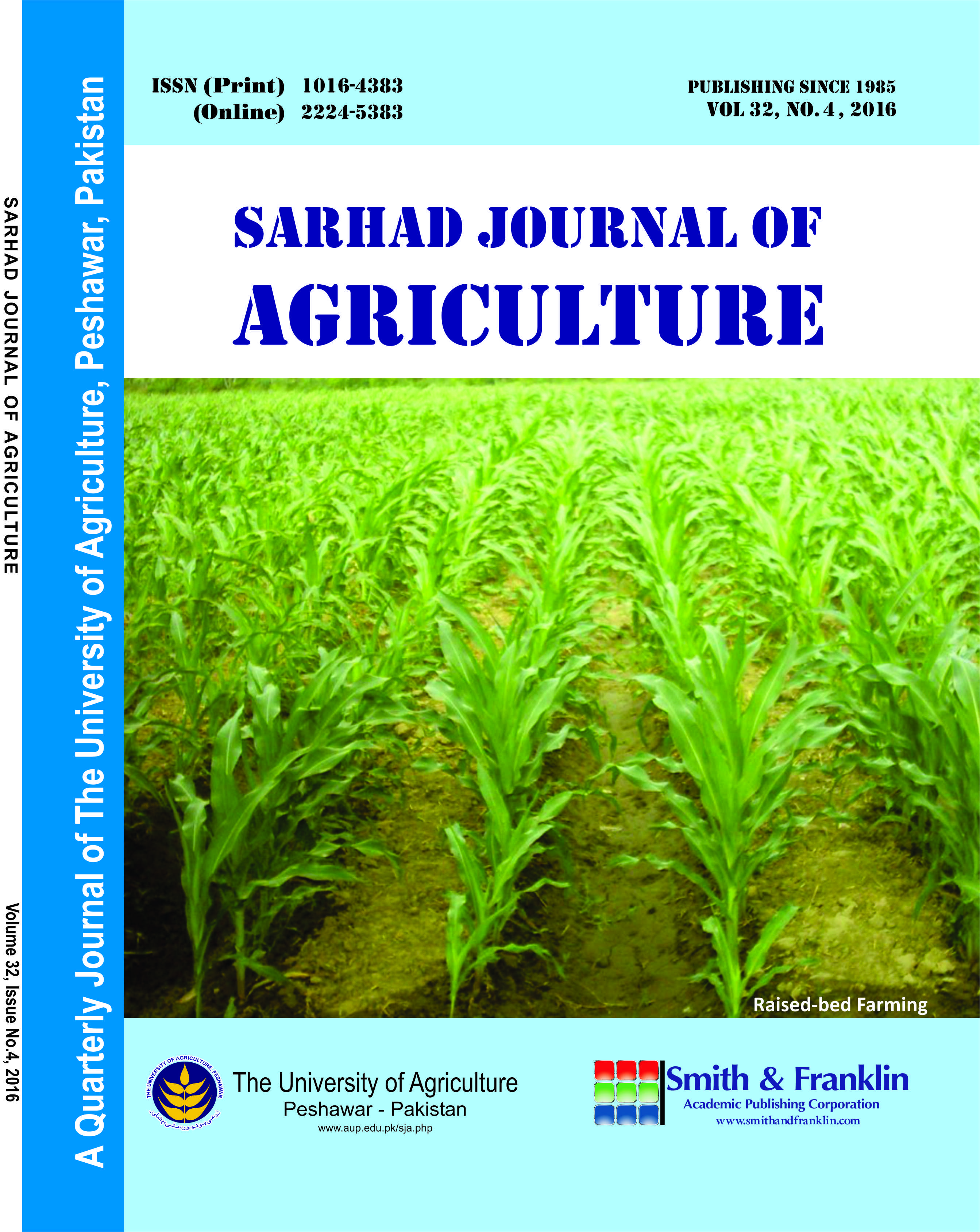Factors Influencing IFMC Farmer’s Attitude towards Government Extension Services in Bangladesh
Factors Influencing IFMC Farmer’s Attitude towards Government Extension Services in Bangladesh
1Md. Faruq Hasan, 2Nazmunnahar Kolpona, 3*Atia Shahin, 3Md. Rayhan Sojib and 3Susmita Sarmin
ABSTRACT
The Integrated Farm Management Component (IFMC) programme under the Department of Agricultural Extension (DAE) aimed to enhance agricultural productivity among landless, marginal, and small farming households primarily by promoting agricultural growth and employment and enhancing the credibility of government extension services. The objective of this study was to determine the attitude of IFMC-beneficiary farmers towards government extension services as well as identify the socioeconomic factors influencing these farmers’ attitude towards the services provided by the government. The attitude statements were constructed using Thurston’s equal-appearing interval technique. Sixteen statements were used to assess the attitude of the farmers using a Likert scale. One hundred twenty-five (125) IFMC farmers from Phulbari upazila in Dinajpur district receiving government extension services were selected for data collection using a multi-stage random sampling procedure. The percentages, means, and standard deviations were employed to summarise the data gathered during the interviews. The inferential statistical investigation involved using correlation analysis and multiple regression analysis. The findings revealed that a significant proportion (72.8 percent) of the respondents held a moderately to highly unfavourable attitude towards government extension services. The key factors influencing farmers’ attitude were individual extension contact, training experience, educational qualification, farm size, annual income, and mass media contact, respectively. Thus, to enhance farmer engagement and trust in government extension services, policy formulation should be aimed at proactive and collaborative communication, emphasising tailored solutions, building a strong extension network, maintaining transparency, arranging digital platforms, targeted awareness campaigns, and practical training.
To share on other social networks, click on any share button. What are these?








